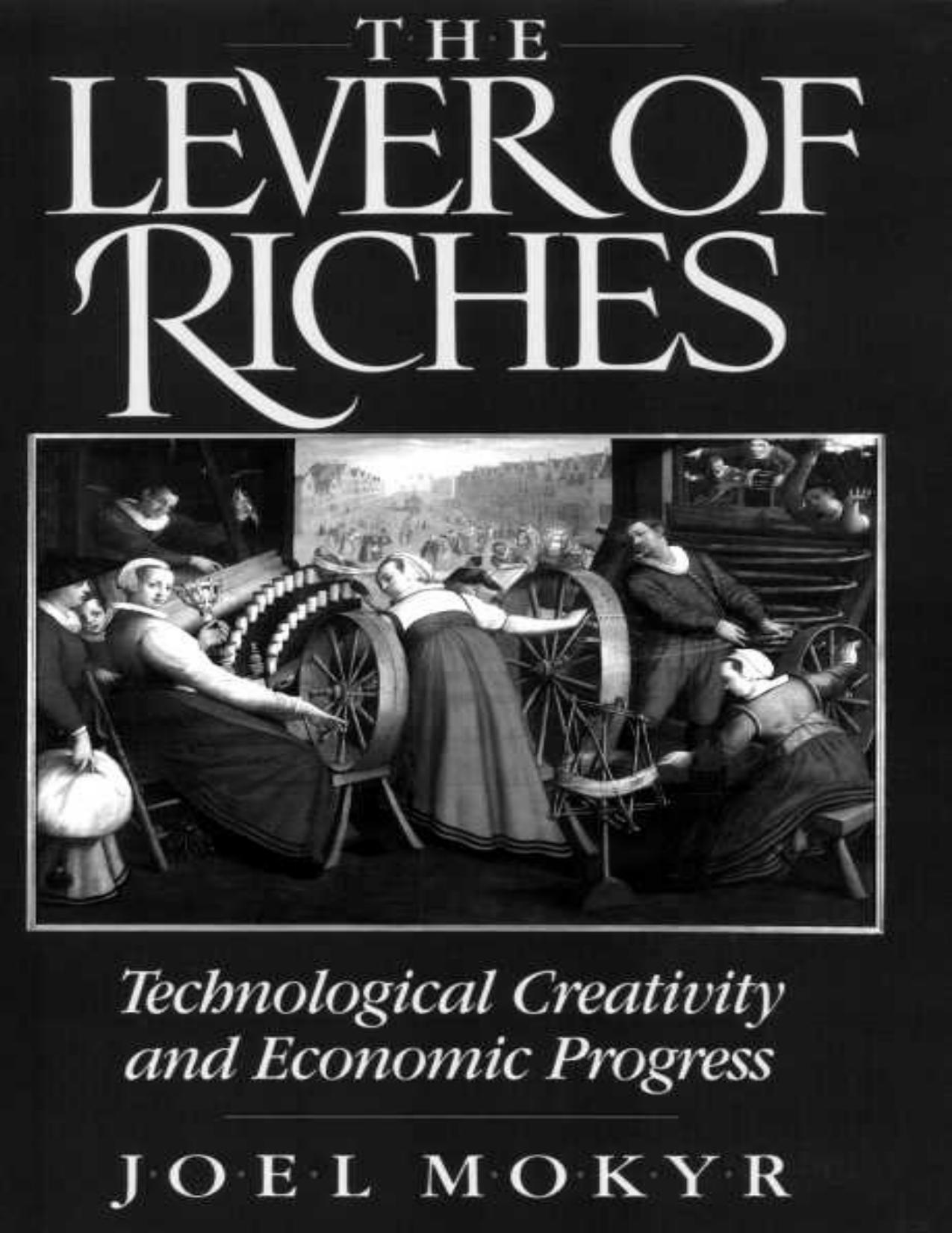The Lever of Riches: Technological Creativity and Economic Progress by Joel Mokyr

Author:Joel Mokyr
Language: eng
Format: mobi, epub, pdf
Published: 2008-09-03T01:42:00+00:00
CHAPTER EIGHT
Classical and Medieval Technology
Why did classical society, with its indisputable intellectual superiority, achieve so little by way of technological innovation compared to the crude and illiterate peasants of medieval Europe? To start with, the slowness of technological progress of classical society should not be equated to, or even associated with, economic backwardness or poverty. We know very little about living standards in classical times, but there is no evidence that they were lower than in the Middle Ages or in the early modern period in Europe. Smithian growth, supported by the convenient location of the centers of gravity of classical civilization around the Mediterranean, and by their relative cultural and later political unity, could provide improved living standards. Moreover, technological progress in the West (lid not inevitably lead to permanently higher living standards, because population growth often took the place of increased consumption of goods and services. The best we can do is to note that if' classical society had experienced more technological progress, it could have enjoyed a higher living standard than it did.
Nonetheless, in view of the striking-contrast in the technological creativity of Graeco-Roman and medieval societies, there is something to be explained. It is clear that no single explanation will do, and that the picture is likely to remain blurry. But we can quickly dispose of a few hypotheses. To start with, the notion that somehow the Romans and Greeks attained the level of technology they needed and that no pressure existed to improve is unconvincing.' As Lee (1973, p. 77) notes, the Romans clearly could have made good use of a ship that would sail better to windward. For all their genius in physics and mathematics, the Greeks never improved their agricultural tools, and the Hellenistic astronomers never learned to apply their clever astronomical instruments to down-to-earth uses such as orientation at sea. The inefficient harnessing of horses, the tardy adoption of waterpower, and the backwardness of Roman metallurgy reveal the ancients' weakness on two important technological fronts: energy and materials.
Furthermore, the argument that the physical geography of the Mediterranean environment was not conducive to technological change will not get us very far. True, timber and running water, the building blocks of medieval technology, are comparatively scarce in southern Europe, though wood was certainly more abundant in the Mediterranean area in classical times than it is today. After Julius Caesar, most of western Europe was under Roman control and the empire used resources from Spanish silver to Cornish tin. Moreover, Mediterranean geography as such was not antithetical to technological progress. As we have seen, much of the technological change in medieval and Renaissance Europe originated in Italy and the Mediterranean region.
Another view holds slavery directly responsible for the slowness of technological change. Most slave societies we know of (ancient Egypt was a possible exception) were not particularly conducive to innovation. But then, neither were most nonslave societies. The argument raised by some (e.g., Lilley, 1965) that slaves were simply cheaper than machines seems hollow. It is incorrect to suppose that slave labor is substantially cheaper than "free" labor.
Download
The Lever of Riches: Technological Creativity and Economic Progress by Joel Mokyr.epub
The Lever of Riches: Technological Creativity and Economic Progress by Joel Mokyr.pdf
This site does not store any files on its server. We only index and link to content provided by other sites. Please contact the content providers to delete copyright contents if any and email us, we'll remove relevant links or contents immediately.
Life 3.0: Being Human in the Age of Artificial Intelligence by Tegmark Max(5547)
The Sports Rules Book by Human Kinetics(4379)
The Age of Surveillance Capitalism by Shoshana Zuboff(4275)
ACT Math For Dummies by Zegarelli Mark(4043)
Unlabel: Selling You Without Selling Out by Marc Ecko(3658)
Blood, Sweat, and Pixels by Jason Schreier(3614)
Hidden Persuasion: 33 psychological influence techniques in advertising by Marc Andrews & Matthijs van Leeuwen & Rick van Baaren(3552)
The Pixar Touch by David A. Price(3431)
Bad Pharma by Ben Goldacre(3422)
Urban Outlaw by Magnus Walker(3392)
Project Animal Farm: An Accidental Journey into the Secret World of Farming and the Truth About Our Food by Sonia Faruqi(3212)
Kitchen confidential by Anthony Bourdain(3080)
Brotopia by Emily Chang(3048)
Slugfest by Reed Tucker(2997)
The Content Trap by Bharat Anand(2917)
The Airbnb Story by Leigh Gallagher(2851)
Coffee for One by KJ Fallon(2630)
Smuggler's Cove: Exotic Cocktails, Rum, and the Cult of Tiki by Martin Cate & Rebecca Cate(2518)
Beer is proof God loves us by Charles W. Bamforth(2453)
